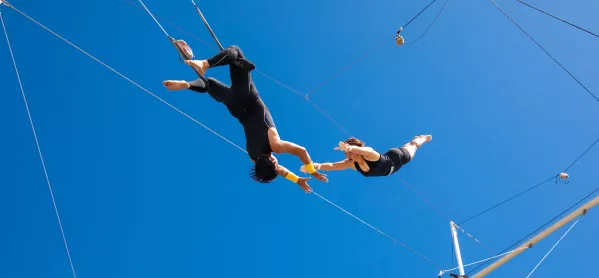Last night it was Ofsted’s turn to climb down from an increasingly indefensible position on Covid safety.
Inspectors will not be heading into schools from next week, during a lockdown, after all.
The watchdog’s decision adds to an increasingly long list of embarrassing U-turns from our education leaders during this pandemic. But it was obviously the right decision.
The big question is what possessed Ofsted to think that in-person school visits were a good idea in the first place?
U-turn: Ofsted moves inspections online until half-term
Opposition: Inspectors fight Ofsted plan to send them into schools
School visits: Ofsted will go into schools during lockdown
Exclusive: Rule out Ofsted lockdown visits, say heads
When my colleague John Roberts relayed the inspectorate’s initial decision to our virtual Tes newsroom, the unilateral view was astonishment. Our collective jaw dropped.
Coronavirus: Ofsted’s justification for school visits
For Ofsted to send its inspectors into schools - just as Covid reached its highest peak yet, increasing the risk for everyone concerned - seemed an incredible position to take.
Ofsted’s explanation was that its monitoring inspections would “require some work on-site in order to provide robust assurance to parents and others - including about the pupils who are still attending schools”.
It added that: “Working on-site also means inspectors will be able to access online learning platforms more easily, or speak directly to pupils and staff through a school’s secure network, not from their home.”
But in the middle of a pandemic? With infection rates spiralling? It didn’t really seem to make sense.
Perhaps just as incredible has been Ofsted’s explanation for its sudden about-turn last night.
A spokesperson said it had “reviewed” its school inspection plans “in light of a change in emphasis from the government and clear advice to ‘act as if you have the virus’ over the next few weeks”.
But has there really been a “change in emphasis” over Covid since Ofsted told Tes of its plan to go into schools, just four days earlier, on Friday afternoon?
The watchdog has got form for trying to use central government policy as an apparent smokescreen for sudden reversals over school inspections during the pandemic.
Last term, at the start of November, Ofsted announced that its controversial “visits” to schools would move online - linking the sudden change to an impending new national lockdown.
So nothing at all to do with the news, revealed by Tes only five days earlier, that a primary had been forced to close after a visit from an Ofsted inspector who tested positive for Covid?
Strangely the imposition of a national lockdown didn’t seem to make a blind bit of difference to Ofsted’s thinking on the wisdom of going into schools this term.
So what has prompted the latest about-turn? Ministers have actually been telling people to behave as if they have got Covid since before Christmas. So why, suddenly, more than three weeks later, has Ofsted decided to start listening to their advice?
Might it have anything to do with the revelation, less than 24 hours before Ofsted’s U-turn, that its own senior inspectors were deeply unhappy about the plan to go into schools? That they regarded the inspections as a “simply unacceptable” health risk?
The best Ofsted could muster as an apparent acknowledgement of these fears last night was an admission that “the practical challenges of deploying inspectors across England” had prompted the rethink.
Of course, there was a “challenge” - inspectors didn’t think it was a good idea to go into schools. But if they could see that, and teachers and heads could see that, and local authorities could see that, then why couldn’t Ofsted’s top brass see it, too?
